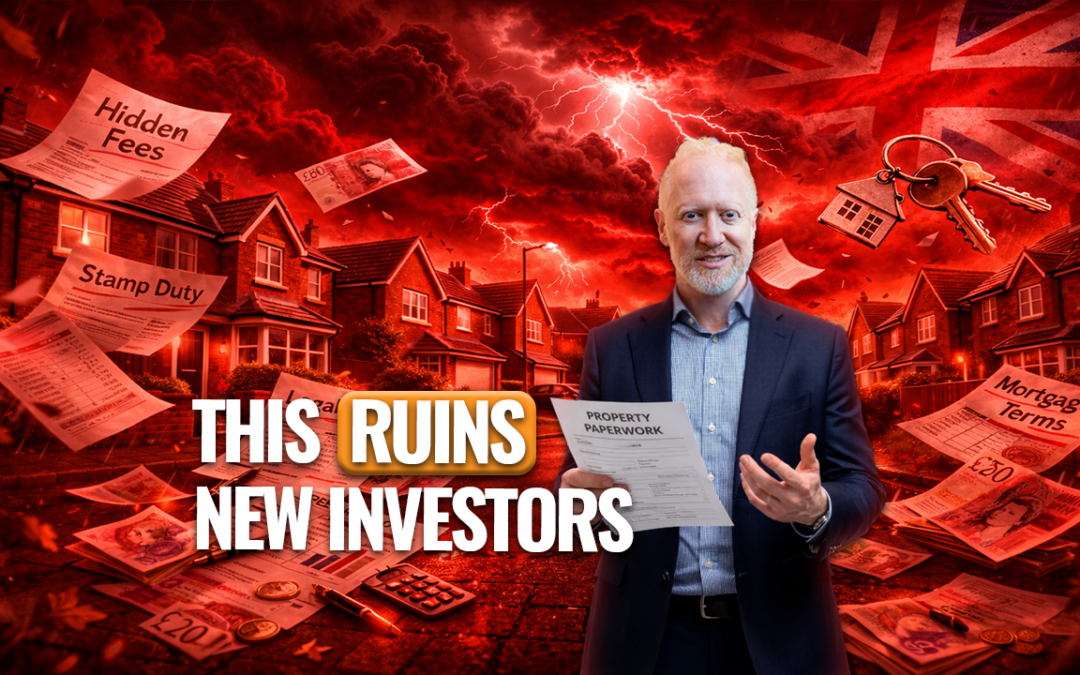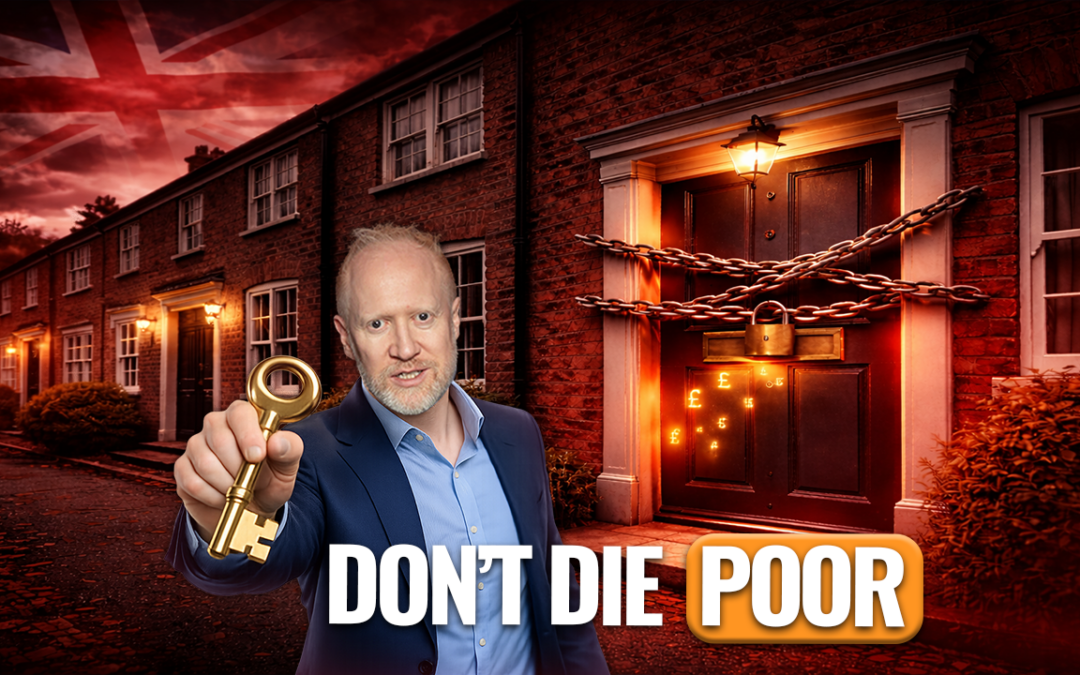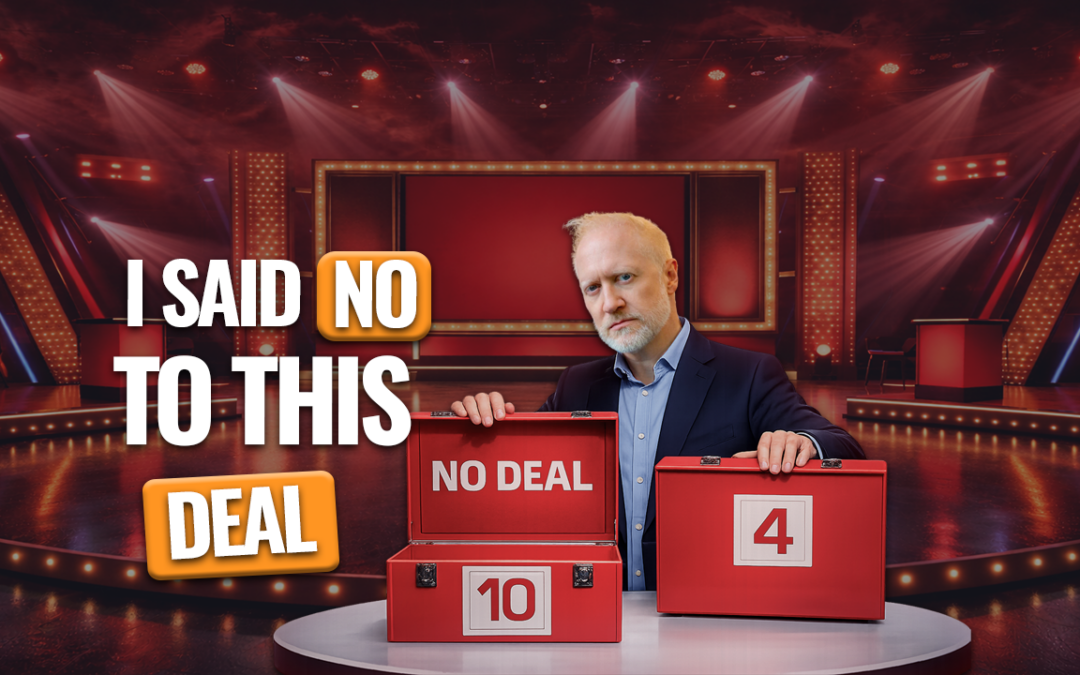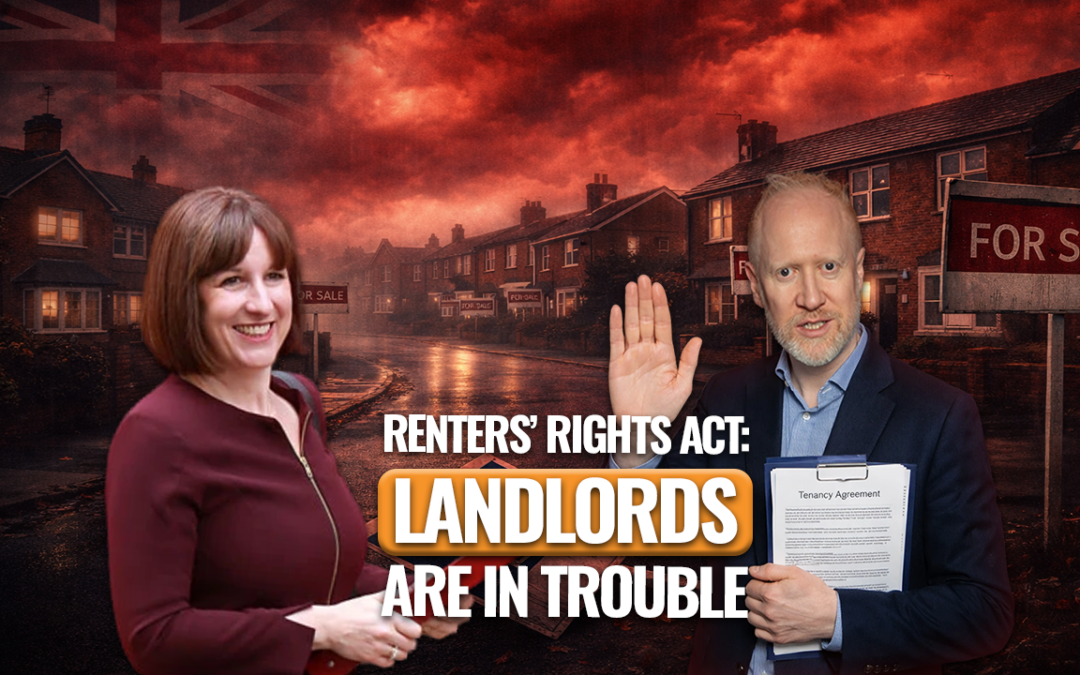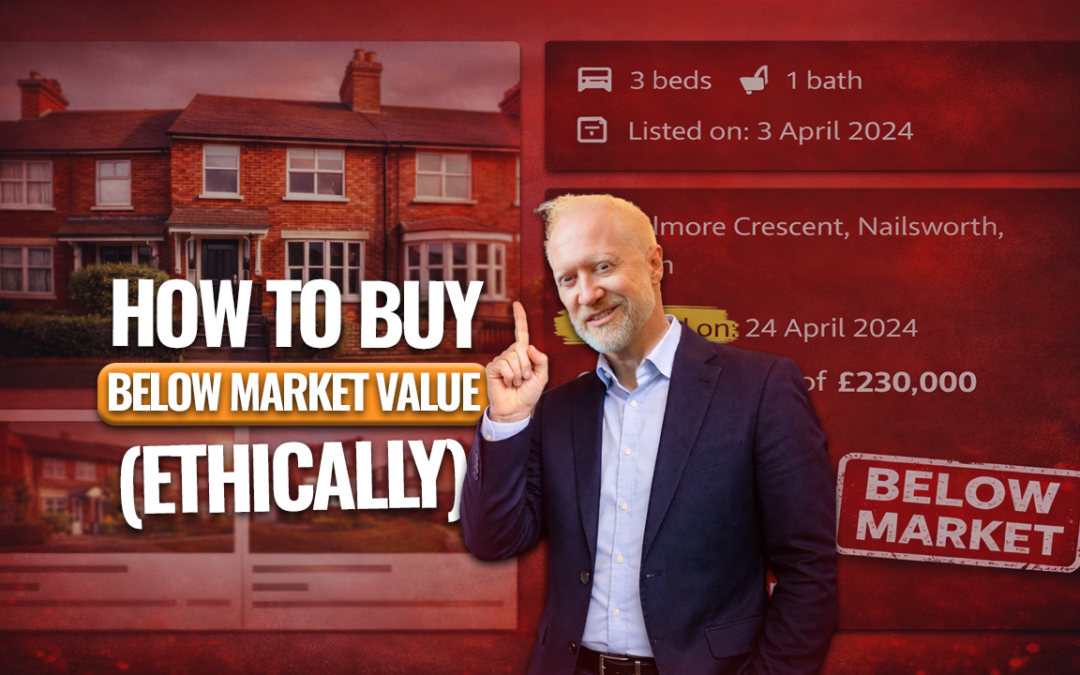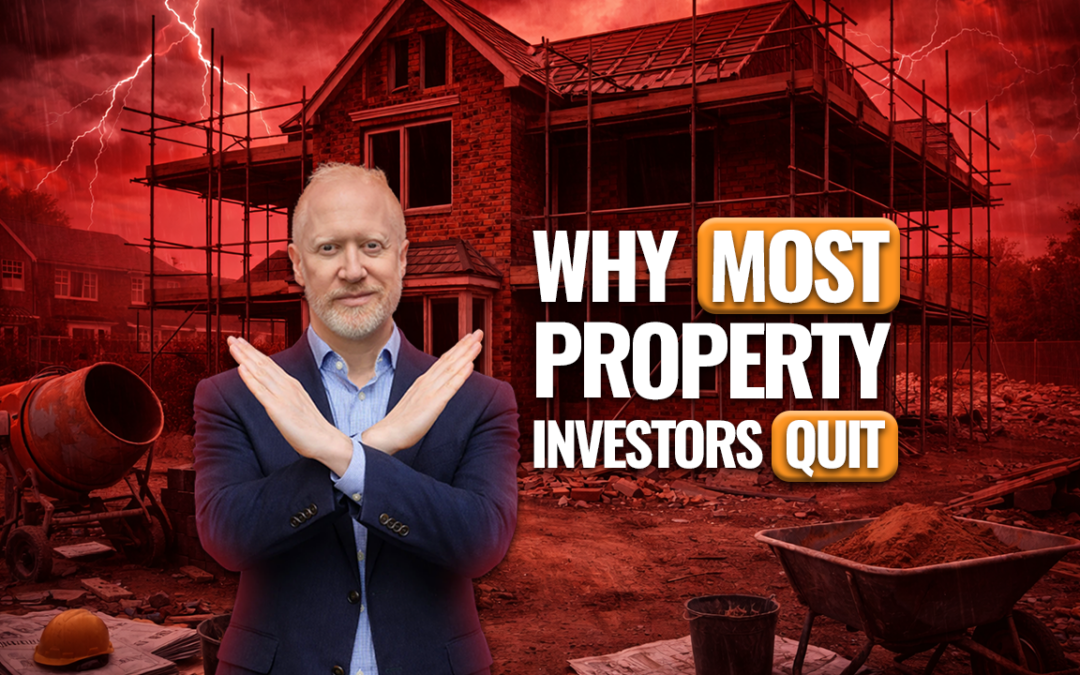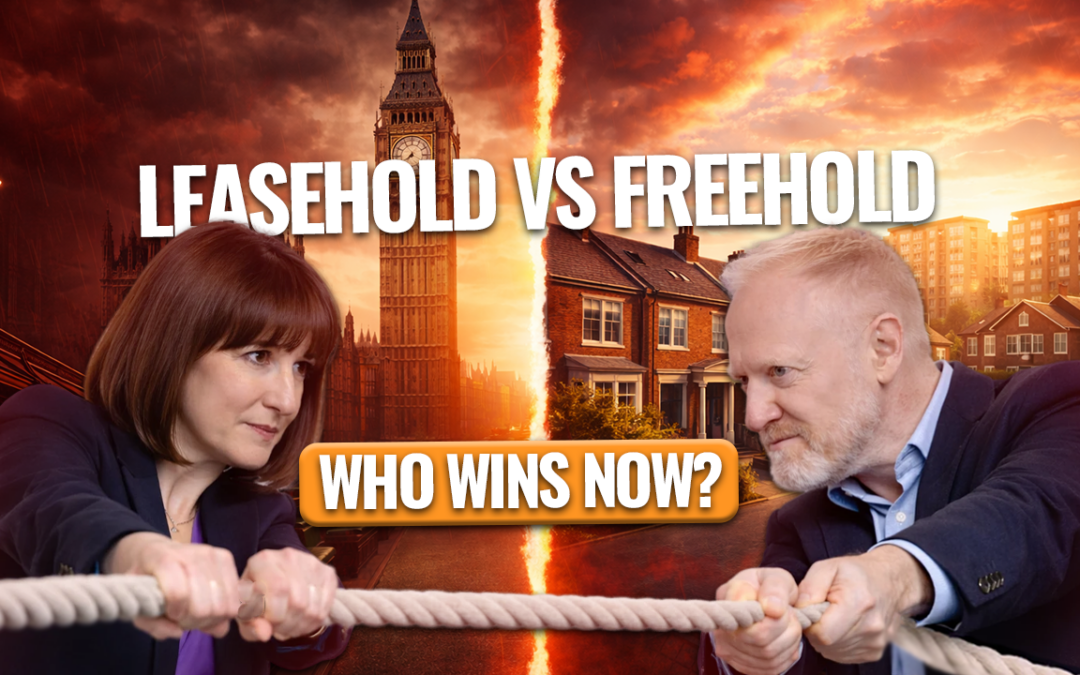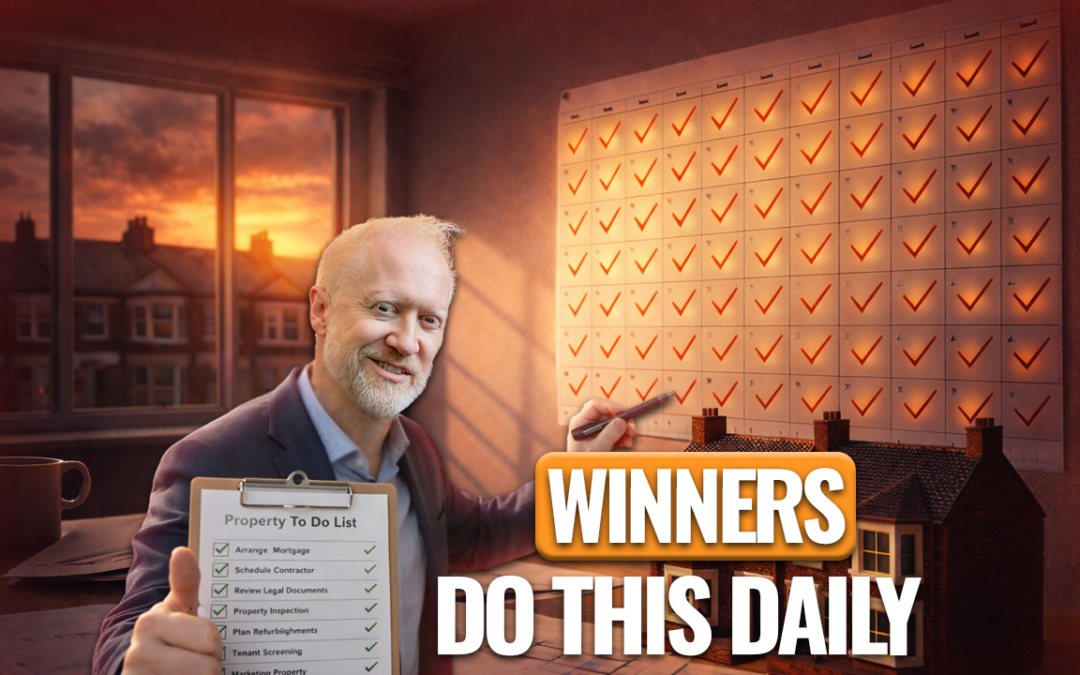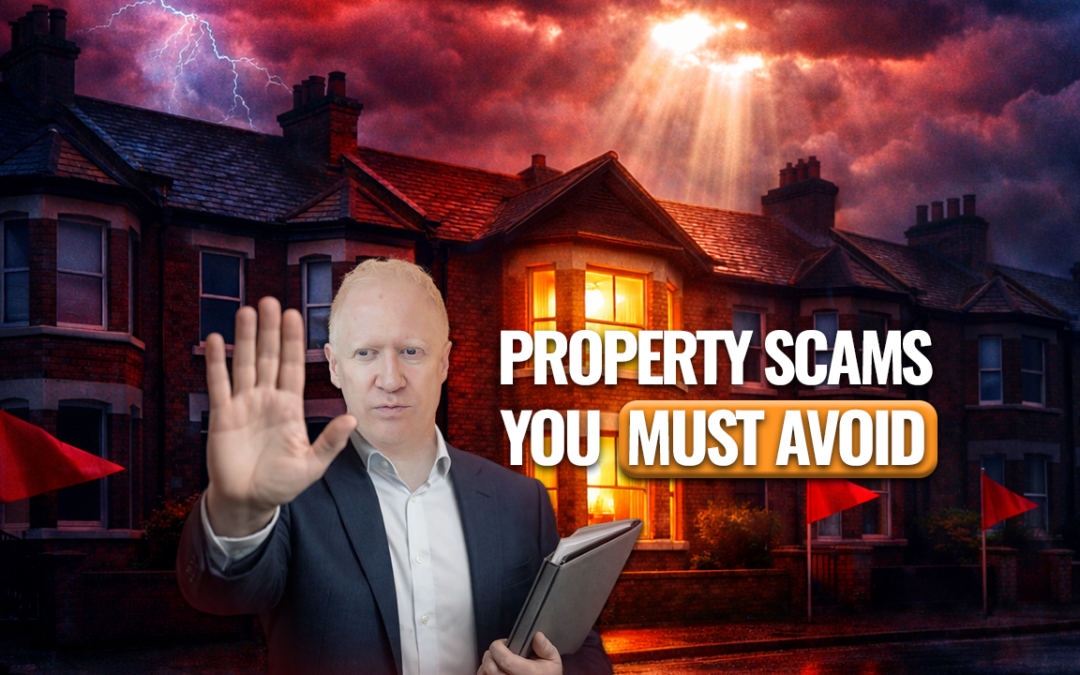In this blog, I want to explain why I believe you should hold property, and never sell. One of my rules that I have, is that I never want to sell property. There’s a slight caveat to that because I do actually sell property occasionally, I’ll explain why, but a general principle is, I should never sell. Why do I have that view?
The Power of Long Term Capital Appreciation
Well, it’s simple. I’ve been investing for 25 years. Over the time, I bought some property deals, some have been better than others. When you buy a property, it’s based on the knowledge and experience you have at that time. As I become more experienced and I learn more over my journey, and by the way, I’ve been investing 25 years, but I don’t claim to know it all, I’m still learning all the time, and still actively investing, and actually I learn a lot, from my students who are out there doing it as well with me. I’ve seen that the long-term capital appreciation, the way values or property go up is just so powerful.
On my first property I bought for 48 and a half thousand pounds back in 1995, that seemed like a lot of money to me. And I remember I bought that property, it was the most expensive I could afford, I’d just started work at Cadbury’s, and I’ve rented out some of the rooms to my friends, who were still at university, and I pretty much lived for free. A few years later, I’d saved up some money in my business bank account, and I wasn’t spending all my salary as well. I had enough to buy a second property. And I started looking around, and I wanted to move closer to where I was working, which was at Cadbury’s in Bournville. Bournville was the next suburb, next to where I used to live in Selly Oak. I looked around and the kind of similar house that I’d bought, they were like 80, 90,000 pounds. I was thinking, that’s ridiculous expensive, that’s so expensive, I bought mine for forty and half. The prices are way too high.
“No matter when you’re coming in, it’s going to feel like prices are high.”
This is something that we think, if you’re thinking to invest, starting to invest right now, you might think, “Oh, I’d love to get it forward, “I wish I’d done it 25 years ago like Simon, “but I need to do it now, “and prices are too high.” No matter when you’re coming in, it’s going to feel like prices are high. But here’s what happened, so I actually bought a house in an area called Selly Park, that was kind of adjacent to Bournville and Selly Oak, and it was a bit cheaper there, it wasn’t such a good area, and I bought a house for 55,000, instead of one for 80 in Bournville. I thought 80, that’s too expensive, I can’t afford to pay that. Wind the clock forward, that first house I bought in Selly Oak, for 48 and a half thousand pounds, 25 years ago, I’ve just had it valued at 330,000 pounds. It doubled in value from about 50 to 100, from 100 to 200, it doubled again, and it almost doubled again to 330.
So over that 25 years, it’s doubled, doubled again, and almost a bit more. By the time you get to 30 years, I’m pretty sure it will be at least 400,000. It’d have doubled, doubled and doubled again. So in the UK, the general trend is that every 10 years, property prices double. Now it doesn’t happen every 10 years, it’s an average, it depends how long the term is in it, depends when you buy as well. But over a long enough period, that’s the trend that I’ve certainly seen. You can go and check it out yourself, go and Google, house prices in the UK, you could look at the records and work it out yourself. Every 10 years on average, property prices double. Those houses in Bournville, they were 80, 90,000 in about 1998, those are all probably 250 or 300,000 now. Again, they’ve doubled and doubled again in value. So this is what happens in property.
The Value of Holding Onto Property in the Past
This is why I’ve sold properties in the past, because I’ve looked at the property and thought, “Well, I’m only making a small cashflow, “and I’ve got some equity tied up in it, “and I want to use the money elsewhere.” So I’ve sold that property, maybe gone and bought another one, but properties I might’ve sold for maybe, I remember one in 2000, I bought it at 42,000, I spent 8,000 on it, so it cost me 50. the value was then 60, so I had 10,000 pounds of profit there, I thought, but I’d rather take that profit out, because I was only making 50 pounds a month renting it. That 60,000 pound house in 2000, is probably worth about 200,000 pounds now. I could’ve had an extra 140,000 pounds of profit, if only I’d held onto the property.
I meet a lot of people who are new to property say, “I want to make money by flipping properties.” It’s buying a property, doing up and selling it. Nothing wrong with that at all. The problem is, that when you sell a property, you crystallise the profit. You’re never going to make any more money from that property in the future, because you’ve sold it. Whereas if you hold it long term, you can rent it out, get cashflow every single month, and you have the long-term capital appreciation. And back in 2000, that house I sold for 60,000, I should have refinanced that. I could get 85% mortgages at the time, I could have got a mortgage for 51,000, got all my deposit money out, all the money I spent building, doing the work on the property, and just kept the profit in there, and it’d worth a lot more now, and I could have gone and bought another property.
So this is with hindsight, and I’m giving you this lesson, this power of hindsight, looking back, I regret selling some of the properties I’ve sold. Now, having said that, there are a few occasions when I might sell a property. Let me share some of those with you. So if you’ve read my book, “Property Magic”, you’ll know I talk about the five golden rules of property investing. And golden rule number two, is we only have buyer property in an area, with strong rental demand. Well over time, the rental demand can change because maybe there’s more properties are built, so the supply increases, or maybe something happens to the employment in the area, that the demand would go up or go down. So over time, what was once a good investment, it may not be such a good investment, it may not be easy to rent out. So if something’s happened to the long-term rental demand in an area, and I can’t easily rent it out, to create cash flow, in that occasion, I might think about selling the property.
“So that would be a reason for selling, I’ve got all this equity, the rental is not great, I can sell it and buy a much more profitable property.”
Tied Up Equity in Your Property
The next one is, that you know what? Sometimes I’ve had properties where their value has gone up so much. There’s a lot of equity there, and when you re-mortgage your property, it’s not just based on the value, it’s based on the rental income of the property. So if the value has gone up more than the rent has gone up, it means there might be a cap to the amount you can actually re-mortgage the property for. So therefore I’ve got a whole load of equity tied up in that property. Now, if I look at the money that’s tied up, compared to the profit I make, every single month is what I call the return on equity. So in other words, if I’m only getting a small percentage return on equity, it might make sense to sell that property, to pay the various taxes I need to pay, to take the profit and invest it in a new property, that’s going to give me a much higher return on investment. So that would be a reason for selling, I’ve got all this equity, the rental is not great, I can sell it and buy a much more profitable property. And then finally, number three, the reason I sell is, guess what? You just need the money. Something comes up, you want to pay off some debt, maybe you want to invest in a business, an opportunity, you need some cash, selling it, as long as you know that opportunity is going to give you a much better scope than the property you’ve got, that occasion, I might then, sell the property and reinvest the money elsewhere.
Assessing Your Property Portfolio
I do actually think that, as a general strategy, if you have portfolio, each year you should look at your portfolio, look at, is there a property, that’s not performing very well? Maybe the rental demand’s not so good anymore. Maybe I’ve always had difficulty with that because it’s a remote area, there were someone managing it and they, I haven’t got some more good to manage it for me. So it’s taken some of your time and energy. Maybe it’s just not a good return on investments. So maybe you take that one property, sell it, and remember when you sell a property, that’s not your own home, you pay capital gains tax on the profit, and you can take off the sales costs and the buying cost, but what’s left is the capital gain, you pay tax on that.
However, each year you have a personal capital gains tax allowance, which currently at time of filming, this is 12,300 pounds. So the first 12,300 from the sale of a property, this is each year, not per properties each year, you get tax free. I quite like getting tax-free money, so, a strategy might be to sell one property a year, take out the tax-free cash, you’re going to pay, tax on the rest of the profit. The only problem is, if you keep selling one property each year, eventually you’ll run out of properties to sell, so that’s not a good thing. So although I sell one property a year, I take that money and reinvest it in a better property with a better cashflow, a better return on investment. So what that means is over time, I’m not necessarily increasing the number of properties, but I’m making the portfolio better and stronger, with better cash flow, better return on investment, and so it’s a much better investment. Because, to be honest, I bought properties over the last 25 years, which at the time seemed like a great idea, knowing what I knew at that time. If I had my time again, some of those properties I would not buy again. So why not sell them, take the profit out, pay the tax, reinvest it in a much better property.
So my general rule of thumb is, I don’t like selling properties, because you’re going to crystallise your profit, you’re never going to make any more money from a property if you sell it. However, those three reasons, are the reasons I might sell. One is, because there’s a problem with the rental demand, second one is actually, it’s not a great investment, I could take it out, reinvest it elsewhere, and I do that pretty much once a year. Or thirdly, you just need the money for something else, and you need to sell the property.
I do hope this blog has been useful, I want you to think about the long-term value of property investing, holding property, that’s how you create true wealth for you, and wealth you can leave as a legacy, to your loved ones in the future. Your kids, your grandkids, your great grandkids will be very happy that you took some time and effort, to invest in property, and build up your property portfolio.

